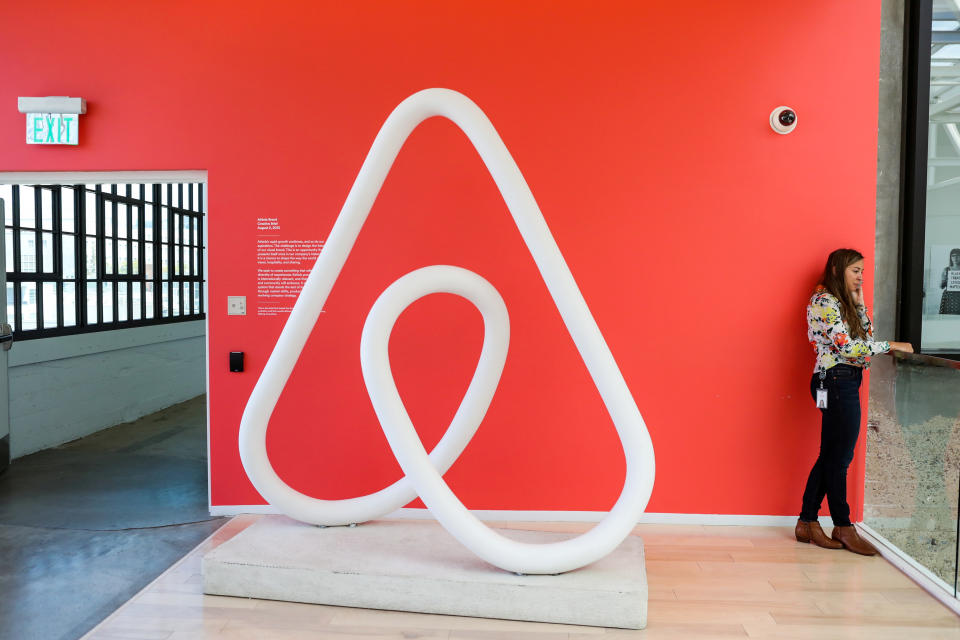Airbnb's cash burn underscores the urgency of its upcoming IPO
Airbnb burned through $1.2 billion in cash in the first half of 2020, more than a third of its cash reserve, according to documents seen by The Information. Most of the drain came from refunds Airbnb had to pay out to customers due to the COVID-19 pandemic; the company cut way back on its marketing and business development spending.
The cash burn is hardly surprising: Airbnb has been hammered by the pandemic. Its revenue fell 67% and its losses grew to $400 million in Q2, up from $340 million in Q1. Its valuation in April reportedly fell to $18 billion from $31 billion before the pandemic. (Airbnb aims to raise $3 billion in its December IPO, which would bring the valuation back up to $30 billion.)
But the cash burn does serve as a reminder that there is a desperation to Airbnb’s upcoming IPO: the company needs more capital. And that raises the question of just how excited investors will be to buy into this company.
Airbnb was a great business idea before the pandemic. But in post-pandemic America, will people be as eager to stay in a stranger’s home?

In April, Airbnb raised $1 billion in new funding led by Silver Lake Partners. One week later, it announced another $1 billion in first lien (creditors who are first to be paid out in the event of a default) debt financing from Silver Lake, BlackRock, Apollo, T. Rowe Price, Fidelity and others. “IPO prospects diminish,” the Bloomberg headline on the debt financing declared. Not so: Airbnb is reportedly still shooting for December.
In May, Airbnb laid off 1,900 of its 7,500 employees. CEO Brian Chesky took criticism for announcing the layoffs on a companywide Zoom call.
And even though Chesky told Yahoo Finance editor-in-chief Andy Serwer that Airbnb’s bookings growth returned in July, the hospitality industry is still in a very bad place because of the total standstill in business travel. The American Hotel and Lodging Association (AHLA) said at the end of August that 40% of U.S. hotel employees are still not working, the industry has lost 4.3 million jobs since February, and 65% of U.S. hotels remain at or below 50% occupancy. Airbnb competes with hotels but is also a part of the same industry. (Hotel executives, meanwhile, have tried to make the case that staying in a hotel is more reliably safe and clean than an Airbnb.)
Some recent tech offerings have done extremely well despite the pandemic. Snowflake, a cloud data platform, closed its first day of trading on Sept. 16 up more than 100%. Asana, an enterprise team-management app cofounded by Peter Thiel, closed its first day of trading after its direct listing on Sept. 30 up 35%.
Airbnb is a fellow hot tech unicorn, but it’s also part of the hospitality industry, which is in dire straits, and it’s also part of the “gig economy,” a group of apps and services that all revolve around people sharing their personal homes (Airbnb, HomeAway) or cars (Lyft, Uber) or coming to a stranger’s home to perform a task (TaskRabbit). Will that group of companies thrive again post-pandemic?
“We don’t want to go public if the world’s not ready for us,” Chesky told Yahoo Finance in July. “And if people are really nervous about travel, they aren’t really clear about Airbnb, then the market’s not ready.”
Much of the evidence suggests that a huge number of Americans are indeed still nervous about travel. If Airbnb debuts before the end of the year anyway, it’s because the company needs the infusion of capital, and needs it right away.
—
Daniel Roberts is an editor-at-large at Yahoo Finance. Follow him on Twitter at @readDanwrite.
Read more:
Airbnb has been brutalized by the pandemic, but will IPO anyway in 'forgiving' market
Best Western CEO says Airbnb can't promise the cleanliness hotels can during pandemic
Airline, hotel industry reps both say their rebound depends on the return of business travel
Disney, WB are sending a clear signal: Americans aren't ready to return to movie theaters
Uber Eats is bigger business than Uber rides right now, but far from profitable
Curbside pickup is ‘exceptionally sticky’ and will continue post-pandemic: McKinsey retail analyst
